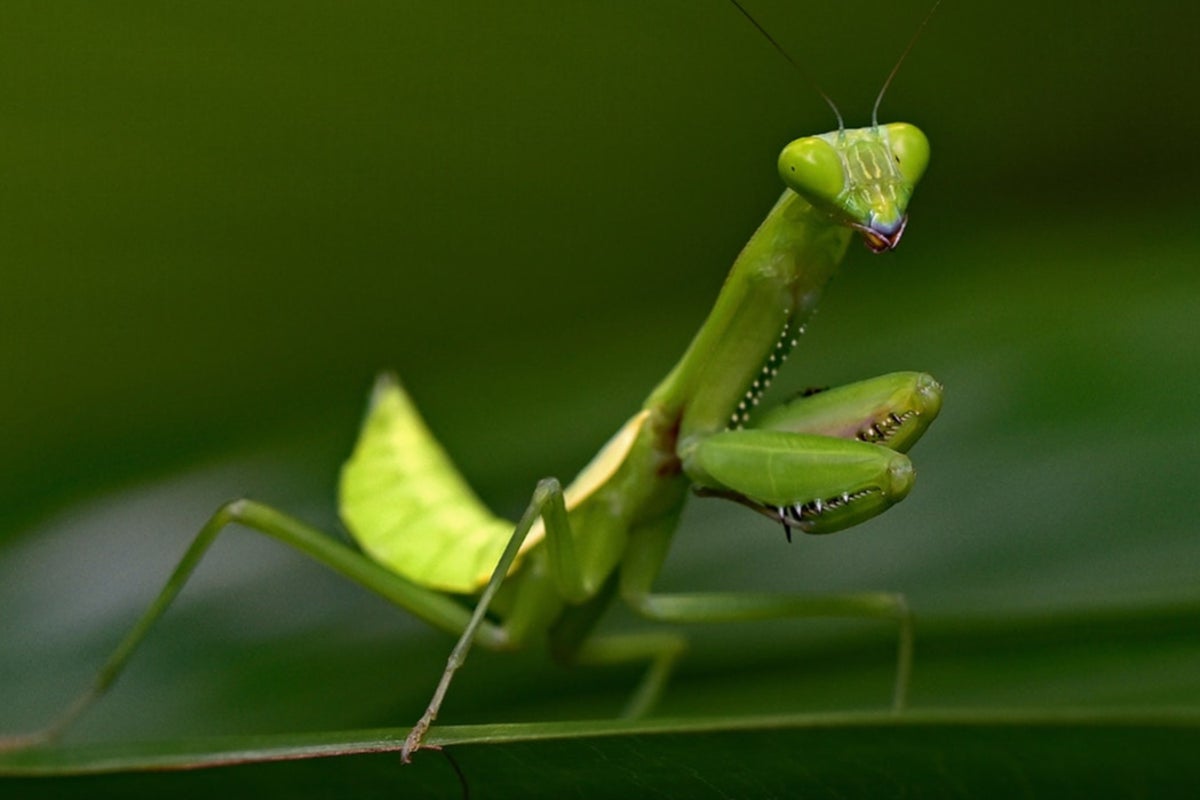
Praying mantises have been spotted twice in the wild in England for the first time, with experts suggesting they may have been “blown over” from mainland Europe.
The stick insects were spotted in gardens near Truro and Mousehole in Cornwall, according to the Cornwall Wildlife Trust (CWT).
The charity said the insects could have to Cornwall by strong winds, or been transported accidentally to the UK in someone’s luggage.
They added it is also possible that the insects are from a pet collection, though that was unlikely given they were spotted in different locations and nobody has claimed them.
There are breeding populations of praying mantises on the Isle of Wight and the Channel Islands but not on mainland England.
“It seems it’s only a matter of time before they colonise mainland Britain,” the CWT said.
“The European praying mantis are about three inches long. They eat a variety of insects such as crickets and flies and are not a threat to humans.
“It is native to southern Europe but appears to be moving north, considered a ‘climate migrant’.”
Cornwall does have established populations of stick insects, owing to the county’s mild conditions, but not of the praying mantis variety. The Royal Entomological Society (RES), a group dedicated to the study of insects, says this is a useful comparison for how exotic species may settle in England.
Dr Luke Tilley, director of communications and engagement at RES, said: “Praying mantises are charismatic, unmistakable insects and their appearance in Cornwall is fascinating, a new animal to be spotted in the UK.
“At the moment, these are just sightings, not confirmed breeding populations, but they remind us how insects respond quickly to changes in climate and land use.
“Insects come in all shapes and sizes and are superb indicators of environmental change.
“Citizen scientists can make a real difference by recording what they see on platforms such as iNaturalist and submitting records to national schemes.
“The more we understand about new arrivals and shifting distributions, the better prepared we are to protect native species, nature’s food chains and our crops.”
In 2021, the Herefordshire Biological Records Centre recorded a praying mantis sighting in a garden in Oxford. Another was spotted in a plant nursery in Stratford, East London.
